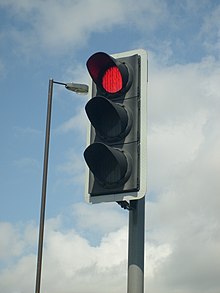So Michael Horn, VW’s US CEO has made a “sincere apology” for what went on at VW.
And like so many “sincere apologies” he blamed somebody else. “My understanding is that it was a couple of software engineers who put these in.”
As an old automotive hand I have always been very proud of the industry. I have held it up as a model of efficiency, aesthetic aspiration, ambition, enlightenment and probity. My wife will tell you how many times I have responded to tales of workplace chaos with “It couldn’t happen in a car plant”. Fortunately we don’t own a VW but I still feel betrayed by this. Here’s why.
A known risk
Everybody knew from the infancy of emissions testing, which came along at about the same time as the adoption of engine management systems, the risks of a “cheat device”. It was obvious to all that engineers might be tempted to manoeuvre a recalcitrant engine through a challenging emissions test by writing software so as to detect test conditions and thereon modify performance.
In the better sort of motor company, engineers were left in no doubt that this was forbidden and the issue was heavily policed with code reviews and process surveillance.
This was not something that nobody saw coming, not a blind spot of risk identification.
The Iron Law
I wrote before about the Iron Law of Oligarchy. Decision taking executives in an organisation try not to pass information upwards. That will only result in interference and enquiry. Supervisory boards are well aware of this phenomenon because, during their own rise to the board, they themselves were the senior managers who constituted the oligarchy and who kept all the information to themselves. As I guessed last time I wrote, decisions like this don’t get taken at board level. They are taken out of the line of sight of the board.
Governance
So here we have a known risk. A threat that would likely not be detected in the usual run of line management. And it was of such a magnitude as would inflict hideous ruin on Volkswagen’s value, accrued over decades of hard built customer reputation. Volkswagen, an eminent manufacturer with huge resources, material, human and intellectual. What was the governance function to do?
Borrowing strength again
It would have been simple, actually simple, to secret shop the occasional vehicle and run it through an on-road emissions test. Any surprising discrepancy between the results and the regulatory tests would then have been a signal that the company was at risk and triggered further investigation. An important check on any data integrity is to compare it with cognate data collected by an independent route, data that shares borrowing strength.
Volkswagen’s governance function simply didn’t do the simple thing. Never have so many ISO 31000 manuals been printed in vain. Theirs were the pot odds of a jaywalker.
Knowledge
In the English breach of trust case of Baden, Delvaux and Lecuit v Société Générale [1983] BCLC 325, Mr Justice Peter Gibson identified five levels of knowledge that might implicate somebody in wrongdoing.
- Actual knowledge.
- Wilfully shutting one’s eyes to the obvious (Nelsonian knowledge).
- Wilfully and recklessly failing to make such enquiries as an honest and reasonable man would make.
- Knowledge of circumstances that would indicate the facts to an honest and reasonable man.
- Knowledge of circumstances that would put an honest and reasonable man on enquiry.
I wonder where VW would place themselves in that.
How do you sound when you feel sorry?
… is the somewhat barbed rejoinder to an ungracious apology. Let me explain how to be sorry. There are three “R”s.
- Remorse: Different from the “regret” that you got caught. A genuine internal emotional reaction. The public are good at spotting when emotions are genuine but it is best evidenced by the following two “R”s.
- Reparation: Trying to undo the damage. VW will not have much choice about this as far as the motorists are concerned but the shareholders may be a different matter. I don’t think Horn’s director’s insurance will go very far.
- Reform: This is the barycentre of repentance. Can VW now change the way it operates to adopt genuine governance and systematic risk management?
Mr Horn tells us that he has little control over what happens in his company. That is probably true. I trust that he will remember that at his next remuneration review. If there is one.
When they said, “Repent!”, I wonder what they meant.
Leonard Cohen
The Future


